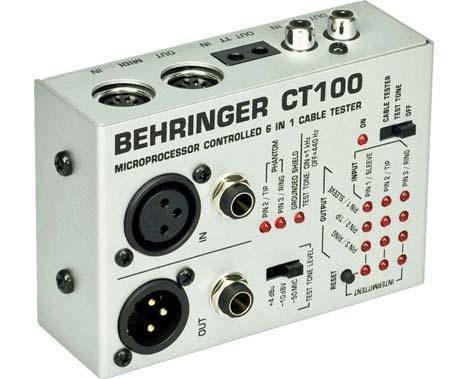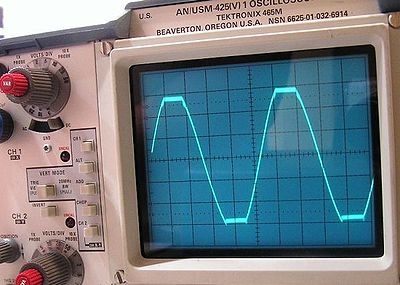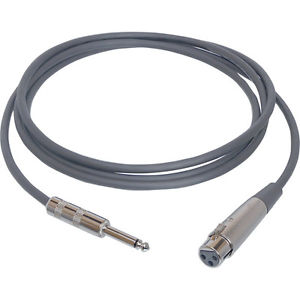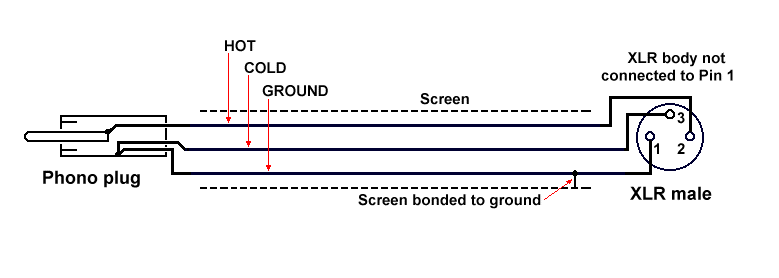| Author | Message | ||
| jazzyvee
Senior Member Username: jazzyvee Post Number: 3730 Registered: 6-2002 |
Last night I had a gig and gave the sound guy a DI out from my F1-x. In the soundcheck he came and told me that the output is too hot and is distorted. So we tried both positions on the switch pre/post and both times he was getting distortion. In the end I used the bass out from the back of my DS-5 into his DI box and he was happy. Any idea what this could be. I seem to recall a previous situation where the same thing occurred. Jazzyvee | ||
| sonicus
Senior Member Username: sonicus Post Number: 3108 Registered: 5-2009 |
Jazzyvee_____ The perceptions of the signal level by your soundman are relative to what he was doing with the signal on his end. Was he perceiving distortion of HIS input stage or really distortion from the Alembic FI-X ? Also relative is the level of the DI from the F1-x and where you send it to . If the level from the F1-X is +4dBu then the measured voltage on PINS 2&3 could be 1.228 volts with a test tone. If this is true then the+4dBu level will result in distortion when sent to a mic level input. A +4dBu level must be sent to a pro line level input stage. If memory serves me correctly there were different versions of the F1-X's DI output circuit . I think there were some that have a higher output level measured at the DI. I own two F1-X's , one seems to have has the lower output DI and the other the Hotter output DI. Mica ___, were their really different versions , is my memory serving me right or wrong ? What are the DI output level design variations on the F1-X if they in fact do exist ? Wolf | ||
| jazzyvee
Senior Member Username: jazzyvee Post Number: 3731 Registered: 6-2002 |
That makes sense Wolf. So my first challenge is to find out which version of the F1-x I have. I have one of these Cable testers and also a voltage tester. How do I use them to find out what the output level of the F1-x is?  Jazzyvee | ||
| jon_jackson
Intermediate Member Username: jon_jackson Post Number: 187 Registered: 12-2008 |
I am also very interested in the answer to Wolf's questions. Jon | ||
| sonicus
Senior Member Username: sonicus Post Number: 3110 Registered: 5-2009 |
Jazzy, With the device shown in your post select the lowest test tone level ( hopefully a sine wave form) to start (increase and observe )and send that to the input of the F1-X. Next you could test the voltage at PINS 2&3 of the F1-X ( this could vary depending on the circuit) ideally it might be best tested under load conditions.(If you have an oscilloscope you could also determine when the tops of the sine wave start to flatten out at the respective output (clipping at the top indicating distortion.) This could work; http://www.gearslutz.com/board/geekslutz-forum/621480-how-do-i-measure-volts-balanced-output-using-multimeter.html Clipping Sine Wave  Line levels and their approximate nominal voltage levels @ V RMS Professional audio +4 dBu 1.228 Consumer audio -10dBV 0.316 0 dBu is 0.775V. +4 dBu "nominal line level" in round numbers is about 1.2V. A good healthy mic level is around -35 dBu which equates to 0.014V (14 millivolts). (Message edited by sonicus on November 22, 2013) | ||
| sonicus
Senior Member Username: sonicus Post Number: 3111 Registered: 5-2009 |
I do not know what the output specs of the DI on the F1-X are designed to be . | ||
| mario_farufyno
Senior Member Username: mario_farufyno Post Number: 1021 Registered: 9-2008 |
Jazzyvee, F-1X manual says Direct Out is "for feeding signals to a mixing console via a standard microphone cable", so one should expect no problems using a mic cable to conect it directly to the mixing board. And this frontal XLR output cannot be +4dBu (nor even -10dBV), since mics can be as low as -50dBu and wouldn't make much sense using a mic jack to output line levels (or suggest to connect it to a mic input). Would Alembic make that mistake? I doubt... but would be simple to make a bal-unbal cable (XLR to P10 plugs) to use it in a line input of a DI box. I'm assuming you've used a mic cable from F-1X Direct Out direct into the console, through a mic input. No direct boxes involved and you didn't tried the efx send output nor main outs (from crossover or the full range), right?... Those must be +4dBu and can be really too hot to mic levels and even for instrument inputs of any mixing desk - as for any direct boxes. Anyway, you can always make simple attenuator circuits to pull it down | ||
| mario_farufyno
Senior Member Username: mario_farufyno Post Number: 1022 Registered: 9-2008 |
many di boxes are capable to attenuate, too. some boxes have switches to put down input level as low as -25dB. this could match pro line level (+4dBu) from a EFX send to typical (passive) Instrument levels... | ||
| mica
Moderator Username: mica Post Number: 8064 Registered: 6-2000 |
Here's how to determine what version you have: http://alembic.com/club/messages/16271/39582.html?1178764979 | ||
| sonicus
Senior Member Username: sonicus Post Number: 3114 Registered: 5-2009 |
Thanks Mica . My memory did serve me right to the version variations as per your link. Thanks for guidance ___ AWESOME ! | ||
| keith_h
Senior Member Username: keith_h Post Number: 1928 Registered: 2-2005 |
The statement about using microphone cables does not indicate it is a mic level DI. All it is saying is you can use a microphone cable and implies a balanced low impedance output. DI's are typically line level signals so the board operator should have had the line level pad enabled at the mixing console. While it might be the DI we don't know enough about the rest of the signal path to say it wasn't the console operators fault. I sometimes get push back when I want to use the DI on my Navigator. The excuse is it is to noisy although it is fine on my own PA and other PA's where I have used it. I think these situations are more of a comfort/knowledge level with operator. I just say ok and let the sound operator use their DI box. Keith | ||
| mario_farufyno
Senior Member Username: mario_farufyno Post Number: 1023 Registered: 9-2008 |
Well, if it is line level (and you don't want to change F-1X guts right now), you can make/buy a bal/unbal cable like this:  it must be wired like this:  That way you discard the phase inverted signal of pin 3 along with grounding, keeping just your regular line level signal, to send it to a DI box. (Message edited by mario farufyno on November 23, 2013) | ||
| mario_farufyno
Senior Member Username: mario_farufyno Post Number: 1024 Registered: 9-2008 |
Keith, you are right, using mic connectors doesn't necessarily means mic levels going through it (Mica's link shows that this happened on some units), but figure out how many times people will keep getting mislead by that option... and is a little drag having to mod your pre or making a "special" cable to make it practical in a common stage situation. We can't blame the operator for not figuring out that a mic cable doesn't carries mic level signal from that unit or for not having a bal/unbal cable/adaptor to test it on a line level input... (Message edited by mario farufyno on November 23, 2013) | ||
| keith_h
Senior Member Username: keith_h Post Number: 1930 Registered: 2-2005 |
Mario, You don't need a special cable to handle the DI. The DI on all professional equipment uses a balanced low impedance output and is typically line level. All mid-level to high level mixing consoles that I am aware of can handle line level inputs on the XLR's. It is just the matter of setting the channel pad on the console and adjusting the channel gain accordingly. Again, we cannot blame the DI when we don't know the full signal chain that was being used. Without knowing the equipment used and total gain structure I cannot rule out the sound system equipment or console operator as having caused the problem. If the board was truly being over-driven an external pad could have been installed to reduce the level from the DI to console input. Jazzyvee, Now that you have two F1-X'es you might take both with you and see if the situation happens with only one or both. It would be a good way to eliminate the DI itself as the problem. Keith | ||
| jazzyvee
Senior Member Username: jazzyvee Post Number: 3734 Registered: 6-2002 |
Hi Keith I have them both in my rack now and he was gonna try the bridge pickup f1-x but as it was a reggae gig I needed the neck pickup if only one feed to the desk was available. But there are a number of suggestions I need or re read here and try out to see what is going on with my preamps. Jazzyvee | ||
| jazzyvee
Senior Member Username: jazzyvee Post Number: 3735 Registered: 6-2002 |
(Message edited by Jazzyvee on November 23, 2013) | ||
| sonicus
Senior Member Username: sonicus Post Number: 3119 Registered: 5-2009 |
Keith , I concur with ALL of your statements in your post #1930 (above) All of it ! I will refrain from repeating your post word for word , I agree with all of it ! Mario , In much of the truly professional and more pricey of audio gear all that you might find are XLR connectors and terminal strips at all signal levels , more rarely TRS and TS and rca phono plug. Especially older equipment, Think ; "Rupert Neve" , Studer , Ampex , Scully, Universal Audio, SSL, API, MCI, I own some of this stuff. ___The list goes on and on ... ... ... ... _______ It is the operators responsibly in a "professional " setting not to cause a "Train Wreck" , this is what I have observed in the major recording studio, FOH live, and Broadcasting audio world. We are all just human after all and make mistakes. How much forgiveness one gets for these mistake is sometimes a measurement of how much of a clear track record that you have in that scenario and how much you are loved. ___LOL_! Wolf | ||
| sonicus
Senior Member Username: sonicus Post Number: 3120 Registered: 5-2009 |
Mario, Addressing the adaptor that you so nicely illustrated in your post #1023. YES , I agree that in certain situations making such an adaptor (wired to meet those specific needs) can prove to be very useful. There are different standards and norms found on musical instrument preamp and interface and signal process equipment where balanced XLR termination could be impractical . That is where the type of adaptor that you illustrate is very practical, I agree ! | ||
| mario_farufyno
Senior Member Username: mario_farufyno Post Number: 1025 Registered: 9-2008 |
You're right, Keith, I was only assuming the sound guy already have tried to pad incoming signal before stating it was "too hot" for the mic input... | ||
| mario_farufyno
Senior Member Username: mario_farufyno Post Number: 1031 Registered: 9-2008 |
Hey, Jazzyvee, check this out: http://www.ebtechaudio.com/llsdes.html passive line level... |